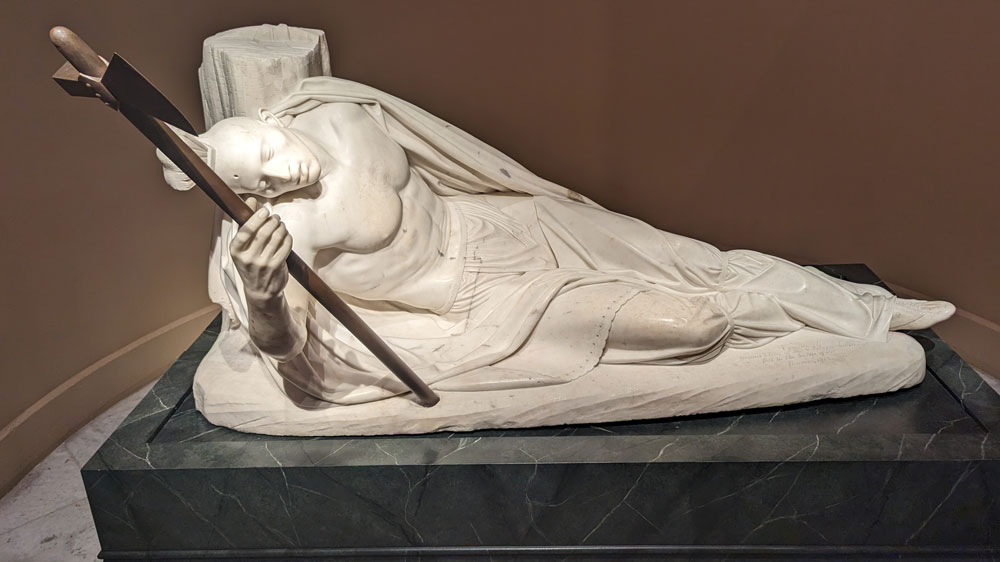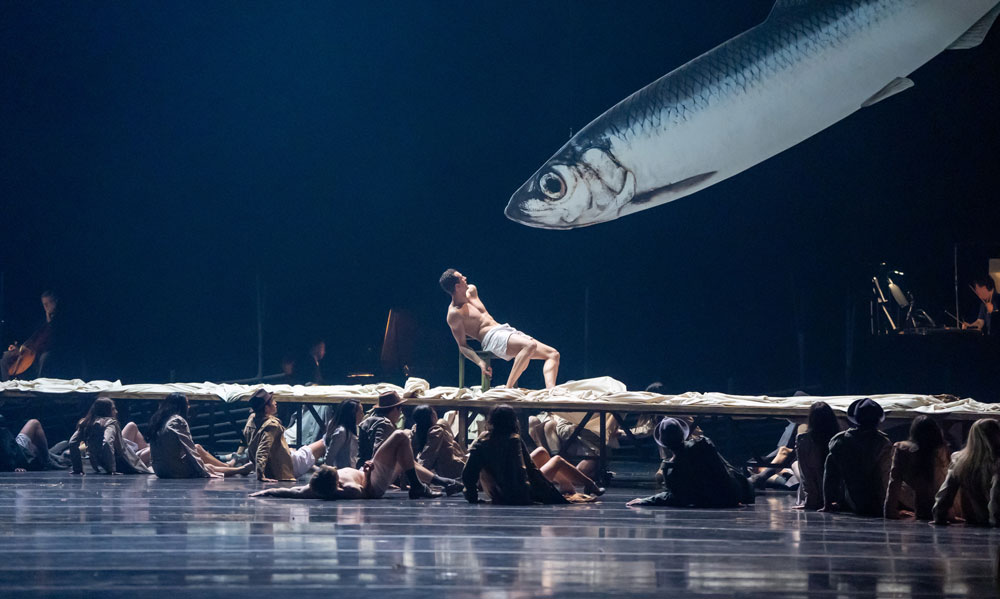The question underlying Monticello, a play about Thomas Jefferson and his views on the Declaration of Independence fifty years after its signing, is a fascinating one. What did Jefferson actually think about the value and legacy of this keystone document now that it was embedded in the national fabric? Playwright Thomas Geoghegan’s ambitious work now at the St. Bonaventure Oratory attempts to answer that query with limited success.
All of the dramatic components were there to make the Monticello a riveting production. Perennially tottering with debt, could the famed Monticello estate be saved from creditors? Did Jefferson really believe all men are created equal? Could greater insights be shed on the Jefferson/Hemings controversy? What were Jefferson’s true convictions regarding the institution of slavery? Could substantive correlations be drawn between the political divisions of 1826 and those of 2017?
Although intelligently written, there exists too many hurdles of imagination to clear if , in its current form, is to be considered credible. Could Edgar Allan Poe, a 17-year-old student at Virginia University during the last year of Jefferson’s life, have played such a central role in helping reflect Jefferson’s views on race? So thinly written, the role of Sally Hemings was vacuous and wasted the talents of the actress portraying her, Taron Patton.
Without doing one’s own research, it’s difficult to tell where fact stops and fantasy begins in this production. Although it is possible Jefferson and Poe may have met, there’s no evidence substantiating it. Jefferson’s financial difficulties in sustaining Monticello are legendary. But is it true that he considered selling the plantation to his depraved racist nephew to save it? Or that the condition of that sale entailed Jefferson recanting on his declaration that all men are created equal?
The injection of comedy proved the most unsettling aspect about the production. None of the plot points possess a kernel of humor at their core. Perhaps the addition of levity was intended to lighten the gravity of the project. Instead, the tactic had the effect of wearing clown shoes with a tuxedo at a black-tie gala. At best, it was confusing. The employment of glib delivery, sight gags and mildly amusing tropes failed to raise the comedic conceits to the level of true wit.
In Monticello, individual performances provided the brightest pleasures. Anji White as Abby, the slave woman privileged to have been personally educated by Jefferson and now consigned to the wanton whims of Jefferson’s nephew through sale, lent the production the type of energy and momentum needed to keep the play engaging. Jeff Kurysz’s Poe would have been refreshing and palatable were it not for the extended slide into slapstick. Marty Lodge as Jefferson proved the value of seasoned heft and what it adds to any endeavor. It also speaks to directorial insight.
Political theatre is dangerous terrain. Negotiating the fine line between screed and enlightenment requires balance and subtlety. Monticello would have benefited from both.


